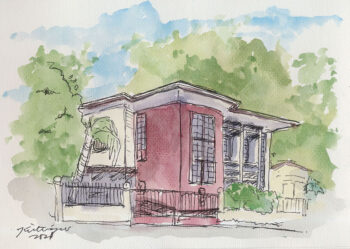CAGAYAN DE ORO CITY (MindaNews / 19 March) – The Department of the Interior and Local Government (DILG) is urging everyone throughout the nation to attend their respective Barangay Assembly on Saturday, March 28.
It is in compliance with PNoy’s presidential proclamation requiring all barangays to convene their Assembly twice a year (last Saturday of March and second Sunday of October), with an agenda provided through a memorandum circular for the purpose.
However we may feel about such directive, particularly as to how it manipulates the exercise of sovereignty and our citizens’ right to assemble as often as we please, we might as well go along and view it as an opportunity to awaken our community to its role in the larger context—as the basic unit of the Philippine Republic and a microcosm of Philippine society.
It is very important that we be conscious at all times that We, Sovereign Citizens, are the source of the government’s legitimacy and of its officials’ authority.
Assertive Sovereignty
Such community assemblies serve an essential purpose in fostering a sense of belonging and solidarity among the neighborhoods while heightening consciousness among the officials concerning their duties and obligations as public servants.
Provided people take part in its deliberations and not allow themselves to be dominated by officials who monopolize proceedings, the Barangay Assembly can rescue the community from being blithely ruled and manipulated by presumptuous traditional politicos (trapos) with selfish agendas and dynastic pretensions.
Literally a constituent assembly, this Barangay Assembly affirms and embodies the paramount role of the popular will in the acts and decisions of government.
Unless the people convene periodically, exchange views, and build consensus on how to secure their interests and the common good, the grassroots will remain helpless captives of trapos, their cronies, and other predators. It is incumbent upon the people to be vigilant and practice an assertive brand of sovereignty.
Establishing Responsible Government
Too many people forget that they are responsible for good governance at every level. Starting with their own barangay, their votes establish governments on all levels all the way to Malacañang and Congress.
And they also forget that responsible governments are created by responsible citizens while irresponsible citizens create irresponsible governments. Thus the people’s essential role in creating governments cannot be overemphasized.
Anyone unhappy with the conduct of government, especially their own barangay or municipal government, should look inward and consider if they themselves are to blame.
But simply acknowledging the blame won’t do any good. It won’t make government or the officials change their behavior.
Power of One
Citizens with a desire for good governance—and who perform their role in its processes—can change the behavior of government. They can because their sovereign power, aided by the law, provides them the strength and the basis for imposing their will, bending wrongful conduct, and stopping graft and corruption.
Asserting the sovereign power of a citizen, using it to reform government or politics, is the important point in the deliberations of the Barangay Assembly. For this Assembly is People Power in a real, actual sense. It is power which starts with an individual participating in the governing process.
This “Power of One,” combined with those of other individuals, strengthens the community’s collective power—which establishes or disestablishes government. To be reminded of this power, to wield it along with the rest of the community, is to bring about the realization of communal wishes and expectations and promote the common good.
As a great American thinker wrote more than a century ago, “Let every man make known what kind of government would command his respect, and that is the first step toward attaining it.” (Henry David Thoreau, 1849, America’s first and foremost practitioner of the Power of One.)
To enable every Filipino to make known what kind of government would command his respect, the Gising Barangay Movement offers an eight-point Agenda, which we shall detail in this column starting Part 2 onwards.
[Manny is former UNESCO regional director for Asia-Pacific; secretary-general, Southeast Asia Publishers Association; director, Development Academy of Philippines; member, Philippine Mission to the UN; vice chair, Local Government Academy; member, Cory Government’s Peace Panel; awardee, PPI-UNICEF outstanding columnist. He is chairman/convenor, Gising Barangay Movement Inc. and author of books on governance. valdehuesa@gmail.com]







